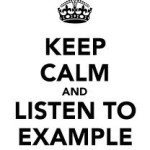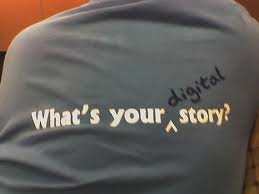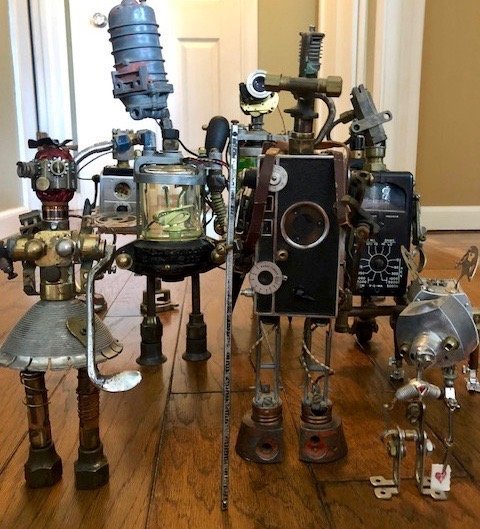
Make Cycle 5

https://www.ashleypenning.com/
Weeks 10 & 11: April 5-16
Make Cycle 5: Our Schooled Literacies in the Now Times
Tasks in a Nutshell (longer descriptions below)
- By Monday, April 5: Discover: school literacies (share notes in Currents Community)
- By Wednesday, April 7: Read: student examples of literacy research (annotate in Perusall)
- Monday, April 12: we’re working on Makes today for a collaborative effort.
- Wednesday, April 14: we’ll finish Makes in class and get started on Wesch’s video in Perusall.
By Monday, April 5:
Discover:
I’ve been thinking a lot lately about the new literacy demands being placed on faculty and students in the shift to fully online educational spaces. It seems like we have an opportunity here to inform faculty and students about how our literacies are being impacted. For data collection/discovery this week, how about we capture some data about all the platforms you are asked to use this semester? I am certain if you are taking this class with me that you have at least 4 platforms that you need to keep track of: Blackboard (for grades), my website, Currents, and Perusall. I am sure you have many more to add to that list. Honestly, I’ll be the first to say that I’m not convinced that we should be worried too much about the amount of platforms. I don’t want all the classes to look the same: that’s just school to me. I want my class to look like my discipline and support what students learn, in this case, about literacy studies. I don’t think my friend in chemistry, Dr. Lisa Ott, should have a class that looks identical in Blackboard: her chemistry class and my English class should look different and offer up different ways for students to participate in our fields. But, I also recognize that we were all asked to learn a lot quickly during the pandemic and to manage our work processes in ways we’ve never done. So, what’s that look like for you? What are you being asked to use and why in your various classes?
Let’s share the range of platforms you are using for classes and reflect on the literacies that are required to use them. Create a list, explain the purpose of the tool or platform, and share how it works for you (post in Currents per usual).
By Wednesday, April 7

Read:
I’m going to put student research central to our reading this week. We’ll read examples of the Mini Ethnography assignment from Miguel, Morgan, and Orion who took this class with me last fall. The examples are their first drafts with my feedback. Start by reading over the assignment below–Mini Ethnography–that is due in late April. We’ll start work on data collection for your project in the next couple of weeks. Once you’ve read over the assignment, then jump over to Perusall and read how these students approached the assignment. Look for a reading called “Examples of Literacy Ethnography from English 332” in Perusall.
Think about how they are addressing the assignment and the questions about literacy (see below) from the assignment. Comment in Perusall on places where you think Miguel, Morgan, and Orion are doing a good job meeting the goals of the assignment. You can also comment on their ideas, how they collected data, and you can ask questions about the assignment on their drafts as well.
 Exploring schooled literacies and plans for research (share writing in Currents Community).
Exploring schooled literacies and plans for research (share writing in Currents Community).
Let’s talk about how the semester is going for you, particularly as it relates to literacy. What are you expected to do with reading and writing this semester? How is the online design shaping your reading and writing practices? What new things have you had to learn? What new ways of working have you figured out? What are you learning (about content in your classes or about trying to do online schooling)?
Then, we’ll talk about the mini-ethnography assignment. What group might you study? (a workplace? an online gaming community? a group or club you belong to?) What questions do you have about the assignment?
Monday, April 12 & Wednesday April 14 (modified)
Make: Create an artifact that represents an idea from this make cycle (share in Currents Community).
WE WILL CREATE THE MAKE IN CLASS TOGETHER on MONDAY, APRIL 12.
How might you use this Make to reflect on the semester so far? Or, how might you use the Make to make suggestions to faculty about plans for next semester? You might check out Miguel’s video from fall semester as he walked us through his courses and the way he structures his work in the now times. You might consider capturing your screen as a walkthrough of your day in a similar way. You might consider a Make that represents what’s going well and what needs work this semester. You could write an open letter to your faculty or to your family…how are you doing? What are you learning? Are there any happy outcomes to this new way of doing school?
Dear new Wildcat… (what advice do you have for new college students about digital literacies?)
Dear faculty… (what do you wish faculty knew about what it means to be a student right now?)
Dispatches…what it’s like to be a student in spring 2021
You might consider using Adobe Spark, which allows you to embed YouTube videos, images, text, etc.
You could record in Flipgrid?
Mini Ethnography (READ THIS BEFORE HEADING OVER TO COMMENT ON MIGUEL, MORGAN, AND ORION’S DRAFTS)
Google Doc shared with kjaxon@mail.csuchico.edu
Due: various due dates for notes/data collection during weeks 12 & 13. Draft due Friday, April 30; Revision due Final’s week
75 pts
Choose a group whose literacy practices you want to learn more about. The group can be a group that meets face-to-face or it can be an online group. Describe and analyze how reading and writing operates within the group. Use our readings and our discussions to guide your use of terms and concepts.
 Begin by closely observing your group for a week. Take copious field notes. Do interviews (online or in person with a mask and social distancing in place) if appropriate and record and/or transcribe them. You often don’t know what’s an important detail until later. Then read and reread your notes, noticing what seems most important or interesting. Focus in on making a claim about your group, a claim that might consider (but not be limited by) the following questions:
Begin by closely observing your group for a week. Take copious field notes. Do interviews (online or in person with a mask and social distancing in place) if appropriate and record and/or transcribe them. You often don’t know what’s an important detail until later. Then read and reread your notes, noticing what seems most important or interesting. Focus in on making a claim about your group, a claim that might consider (but not be limited by) the following questions:
- What “work” does literacy do in the group?
- How is literacy learning sponsored?
- What genres are used? Why? To what extent is new media a component of the work?
- What does “literacy” in this group look like? What is its purpose?
- What is the role of literacy for newcomers? How does literacy facilitate or inhibit membership in the group? What role does literacy play in leadership? How does literacy support a structure of the group? To what degree is the group’s organization hierarchical or egalitarian (or in between)? How does literacy create, support, or maintain that organization?
Your mini-ethnography should be 4-6 pages long (some may grow longer and that’s fine) and include generous literacy examples from the group you are studying. The best ethnographies will use our readings to support their analysis.
Resources for data collection:
Data Matrix (helps to match research questions to data collection)
Examples from last fall:
Morgan’s “Dungeons and Dragons and Identity, Oh My!”
Miguel’s “Discovering Through Play: Minecraft’s Interactive Game Design & Multimodal Literacies”
Orion’s “Literacies of Autism’s sub/Reddit Community”
Bella’s “Rave Ethnography”

 Website:
Website: